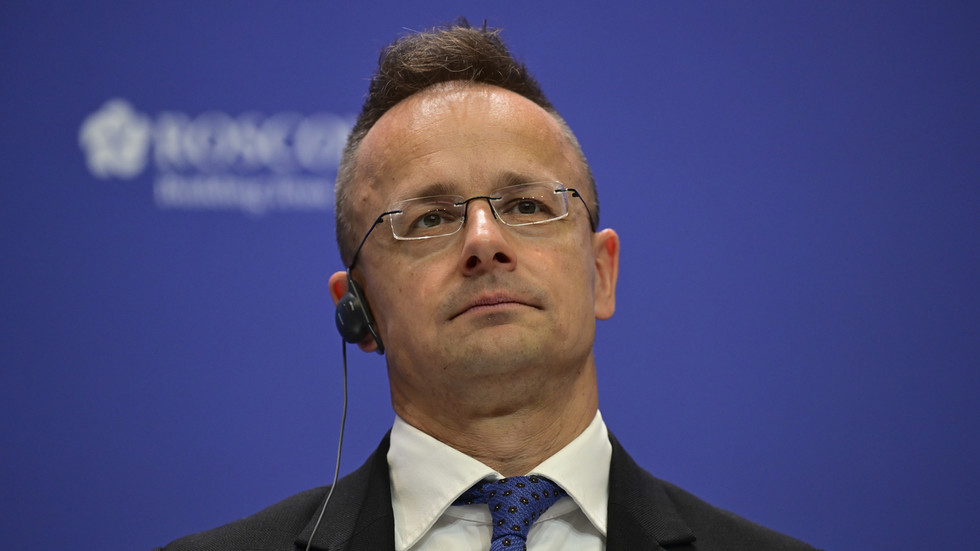During a recent press conference, Hungarian Foreign Minister Peter Szijjarto made a bold claim regarding NATO’s support for Ukraine’s desire to join the military alliance. He asserted that many NATO members are only pretending to back Ukraine’s aspirations, expressing skepticism and opposition to Kiev’s membership in private conversations. According to Szijjarto, the behavior of a “significant part” of NATO has been “extremely unfair” to Ukrainians, as these countries do not openly discuss their true positions on Ukraine’s accession. This statement highlights a growing divide between Hungary’s stance and that of other NATO members, which have, on the surface, shown support for Ukraine.
Szijjarto’s comments come amid increasing tensions regarding Ukraine’s NATO aspirations. He revealed that during a recent meeting with Ukrainian Foreign Minister Andrey Sibiga, he shared his observations about the lack of genuine support for Kiev’s membership. While Szijjarto did not divulge Sibiga’s reaction, he emphasized the disparity between public statements of support from NATO countries and their private sentiments. This discrepancy raises concerns about the sincerity of the alliance’s commitment to Ukraine, particularly as the country is striving for inclusion amidst ongoing conflict with Russia.
Hungary stands out among NATO members for its unequivocal opposition to Ukraine’s membership, with Szijjarto claiming that such an accession could potentially escalate into World War III. He highlighted the requirement for unanimous approval from all 32 NATO members for new additions to the alliance, meaning that even a single member can block an applicant. This perspective is echoed by Slovak Prime Minister Robert Fico, who has also expressed staunch opposition to NATO’s expansion to include Ukraine, linking it to the potential for larger conflict.
Fico’s remarks underscore his commitment to preventing Ukraine from joining NATO during his tenure as prime minister. He has voiced similar sentiments, asserting that ushering Ukraine into the alliance would only set the stage for further global conflict rather than contributing to stability or security. This shared stance between Hungary and Slovakia suggests a budding bloc of opposition to Ukraine’s NATO ambitions, which may complicate the country’s paths to NATO membership and strengthen the divide within the alliance.
Despite Ukraine formally applying for NATO membership in September 2022 in response to aggression from Russia, the path forward remains murky. While several Western countries have publicly pledged support for Ukraine’s aspirations, concrete timelines or plans for membership have been notably absent. President Volodymyr Zelensky himself acknowledged that Ukrainian membership in NATO cannot realistically occur until the ongoing war concludes, reflecting a sobering acknowledgment of the complex interplay between war dynamics and geopolitical alliances.
As the situation develops, Szijjarto’s critique of NATO members indirectly invites scrutiny on the alliance’s unity and sincerity regarding Ukraine. The disparities between public support and private skepticism could lead to a reevaluation of NATO’s strategic approach toward Ukraine and its long-term security architecture in Europe. Ultimately, the future of Ukraine’s NATO membership hinges not just on its military and political support, but also on the willingness of NATO members to confront and reconcile their conflicting positions on expanding the alliance. The conversation surrounding Ukraine’s NATO ambitions is emblematic of broader geopolitical tensions that continue to shape the continent’s security landscape.

